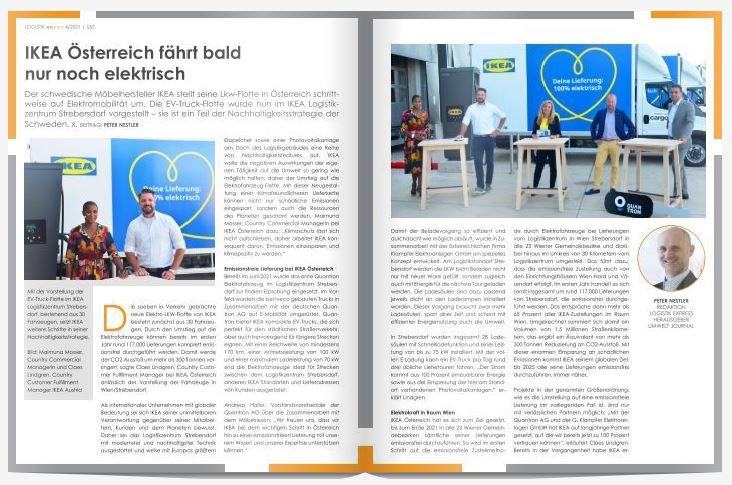EU plans 15pc cut in CO2 from commercial vehicles
The European Commission has set out proposals to cut CO2 emissions from new heavy duty commercial vehicles by 15 per cent by 2025 and 30 per cent by 2030.
The targets are part of the EU’s third mobility package which also includes an integrated policy for the future of road safety; an action plan for the development and manufacturing of batteries in Europe; and a strategy on connected and automated mobility.
In a statement, the Commission said the CO2 targets “are consistent with the EU’s commitments under the Paris Agreement and will allow transport companies – mostly SMEs – to make significant savings thanks to lower fuel consumption (€25,000 over five years).
“To allow for further CO2 reductions, the Commission is making it easier to design more aerodynamic trucks and is improving labelling for tyres. In addition, the Commission is putting forward a comprehensive action plan for batteries that will help create a competitive and sustainable battery ‘ecosystem’ in Europe.”
Transport & Environment, the sustainability campaign group, welcomed the proposals but pointed out that they fall short of the 24 per cent cut by 2025 that had been called for by a group of leading international businesses including Carrefour, IKEA, Unilever, Heineken, Nestlé, Geodis.
In letter to Jean-Claude Juncker, president of the European Commission on 17th April, the companies said: “As a sector we already take many valuable initiatives to reduce CO2 emissions from road transport, and the freight transport industry is committed to meeting the climate challenge. Many big shippers, freight forwarders and hauliers have already voluntarily committed to reducing their carbon emissions, either at company level or as part of green freight programmes. The companies and associations signing this letter are aware of their responsibility and are willing to scale up their commitment to help the EU meet its ambitious climate goals.”
Responding to the Commission proposals, Stef Cornelis, cleaner trucks officer with T&E, said: “The proposed fuel economy standards will save truckers money at the pump, cut our dependence on imported oil and slash truck emissions. But the Commission proposal means a lot of cost-effective clean technologies won’t be fitted to new trucks, which will result in truckers and the climate missing out on big savings.”


